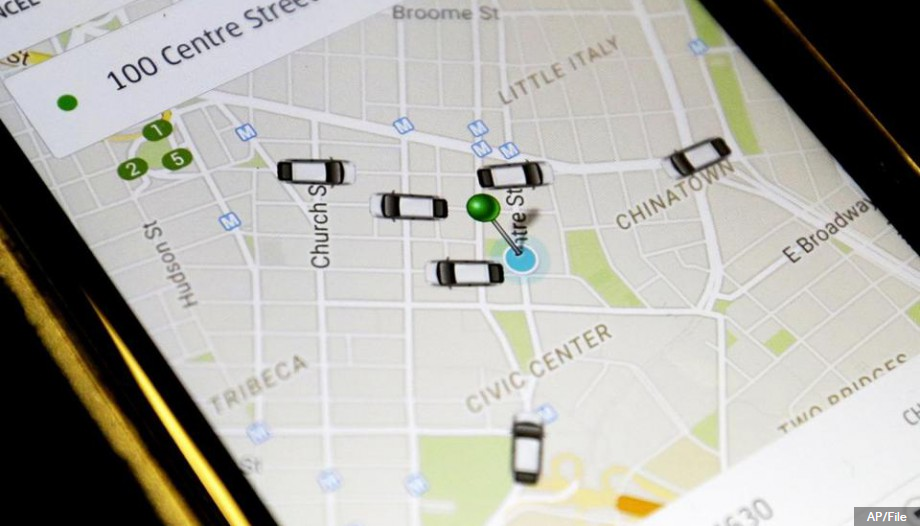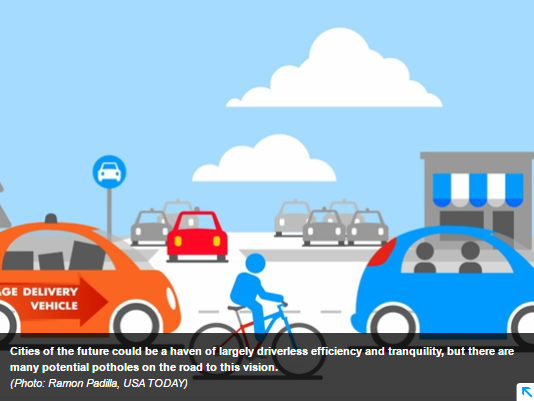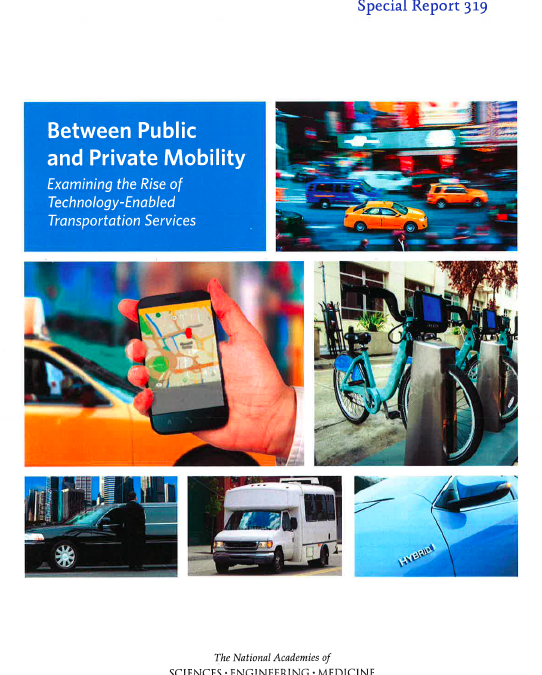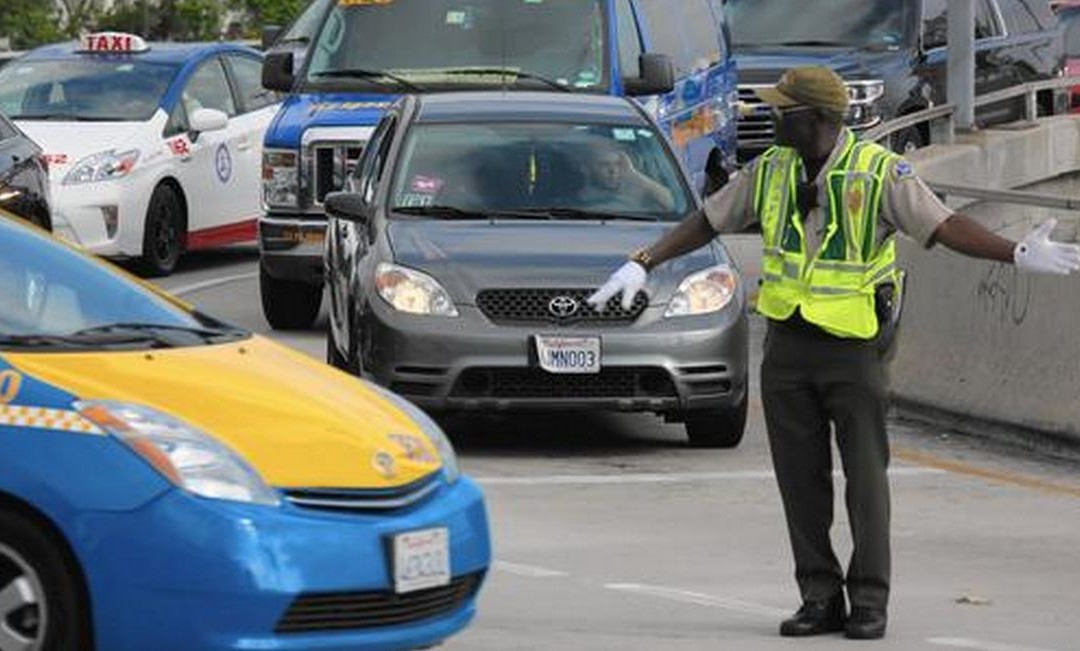
by Innovative Mobility Research | Feb 8, 2016 |
Jack Newsham, 11/13/2015 A group of researchers is set to analyze the environmental impact of Uber and Lyft, whose impacts on auto emissions have long been a subject of controversy. Fans of ride-hailing companies such as Uber and Lyft often argue that they benefit the environment by eliminating the need for people to own a car, butsome skeptics say the services could replace eco-friendly alternatives such as public transportation or biking. Experts from the University of California at Berkeley and the Natural Resources Defense Council’s Urban Solutions program said Friday at an MIT conference that they hoped to clear the air. “All we have right now is anecdotes,” said Amanda Eaken, deputy director of urban solutions at the council. “I think we are all served by understanding what is actually happening with these companies.” To read the rest of the story,...

by Innovative Mobility Research | Feb 8, 2016 |
Marco della Cava, 12:28 p.m. EST November 13, 2015 SAN FRANCISCO – The city of the future has had countless fantasy blueprints, from The Jetsons’ pleasant hive of automated efficiency to Blade Runner’s dystopian tangle of urban chaos. But the reality is the city of future is closer than you think, as tech companies and automakers floor the pedal on projects ranging from cars that drive themselves to apps that aggregate transportation options. Conversations with mobility experts here and abroad paint a picture of an urban revolution that is already underway in a patchwork of cities from Seattle to Stockholm. “The main thing with automated and connected tech is to make sure it’s reliable first,” says Chris Hendrickson, director of the Traffic21 Institute at Carnegie Mellon University. “But the opportunities for change are impressive.” To read the rest of the story,...

by Innovative Mobility Research | Dec 16, 2015 |
By Melanie Curry 12/11/2015 In the last few years, technological advances have been changing the transportation system in ways unanticipated and unprecedented. Bike-share and car-share offered alternatives heretofore nonexistent. Then, in swept Uber and Lyft and other “Transportation Network Companies,” or TNCs, and mobile apps that could completely change the ways people move around in their communities. The National Academies of Sciences, Engineering, and Medicine convened a Committee for Review of Innovative Urban Mobility Services to conduct a consensus study on “technology-enabled transportation services,” including car-share, bike-share, TNCs, ride-sharing companies and mobile apps. Its just-released report, “Between Public and Private Mobility: Examining the Rise of Technology-Enabled Transportation Services,” raises open-ended questions about how these new services might affect current and future transportation systems, and what policymakers and planners ought to be thinking about. To read the full article, click...
by Innovative Mobility Research | Nov 3, 2015 |
Authors: Susan Shaheen, Nelson Chan, Apaar Bansal, Adam Cohen Date Published: November 3rd, 2015 Abstract: Shared mobility – the shared use of a vehicle, bicycle, or other mode – is an innovative transportation strategy that enables users to gain short-term access to transportation modes on an “as-needed” basis. The term shared mobility includes various forms of carsharing, bikesharing, ridesharing (carpooling and vanpooling), and on-demand ride services. It can also include alternative transit services, such as paratransit, shuttles, and private transit services, called microtransit, which can supplement fixed-route bus and rail services. With many new options for mobility emerging, so have the smartphone “apps” that aggregate these options and optimize routes for travelers. In addition to innovative travel modes, new ways of transporting and delivering goods have emerged. These “courier network services” have the potential to change the nature of the package and food delivery industry. Shared mobility has had a transformative impact on many global cities by enhancing transportation accessibility, while simultaneously reducing driving and personal vehicle ownership. A number of environmental, social, and transportation-related benefits have been reported due to the use of various shared mobility modes. Several studies have documented the reduction of vehicle usage, ownership, and vehicle miles or kilometers traveled (VMT/VKT). More research is needed, nevertheless, to further understand impacts on a city and regional level and across the wide range of shared mobility modes. Shared mobility could also extend the catchment area of public transit, potentially playing a pivotal role in bridging gaps in existing transportation networks and encouraging multi-modality by addressing the first-and-last mile issue related to public transit access. Furthermore, shared mobility...

by Innovative Mobility Research | Jul 22, 2015 |
Uber likes to say it is the great equalizer when it comes to transportation: Anyone with a smartphone can use the app to hail a ride quickly and affordably. The state of California wants Uber to prove it, particularly the “anyone” part. Blind people? People in wheelchairs? People who want a ride to a bad neighborhood, or out of one? By law, taxi companies are required to serve those customers and can’t pick and choose who gets rides, a practice known as redlining. Now ride-hailing is under the same scrutiny. Uber may contend that it offers a better alternative than taxi companies, but at least where the state is concerned, they are increasingly becoming one and the same. The California Public Utilities Commission is demanding detailed driver data from Uber and rival ride-sharing companies — data that Uber, citing passenger privacy and proprietary business information, has so far refused to turn over. That led to a dramatic standoff Wednesday when an administrative judge for the CPUC recommended that Uber be fined $7.3 million and its operations in the state be suspended. The agency requires ride data by ZIP Code. But, said Susan Shaheen, co-director the UC-Berkeley Transportation Sustainability Research Center, “I’m not sure ZIP Code-level data is precise enough to capture differences in socioeconomic income.” Getting more granular, going block by block, would be more illuminating, she said. That’s the way many taxi regulators evaluate their data. To read more, click...





